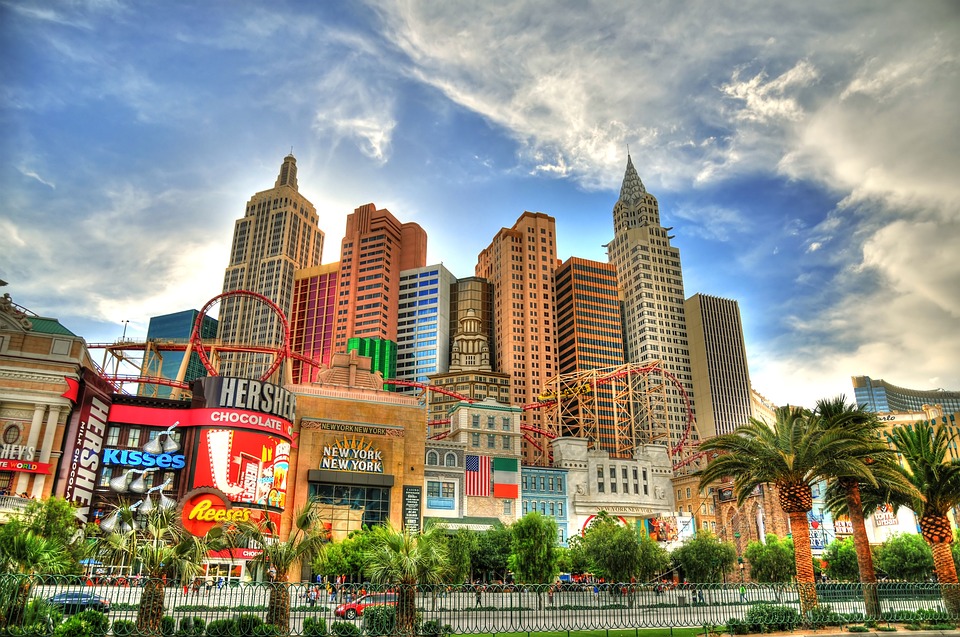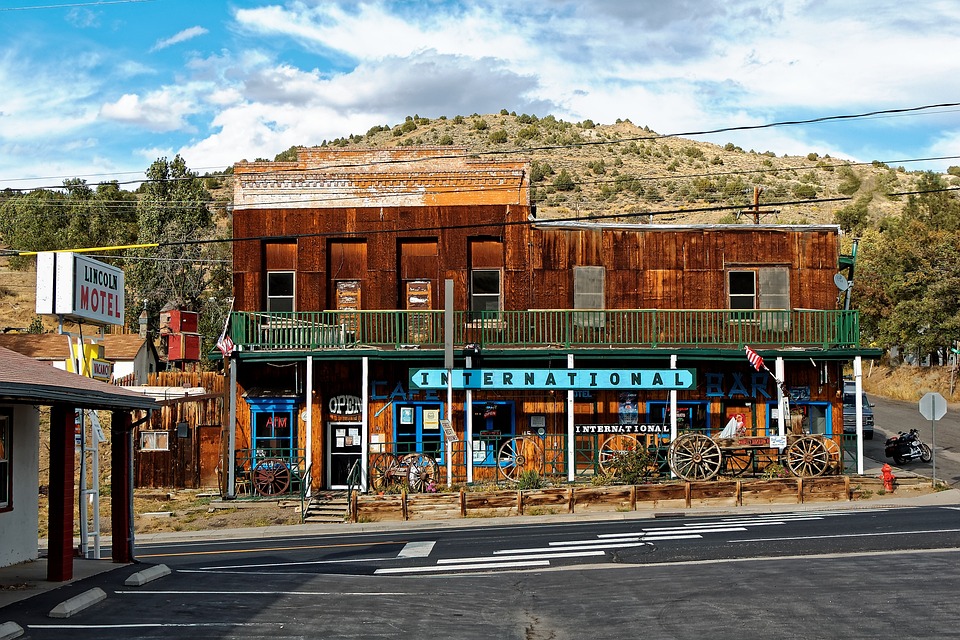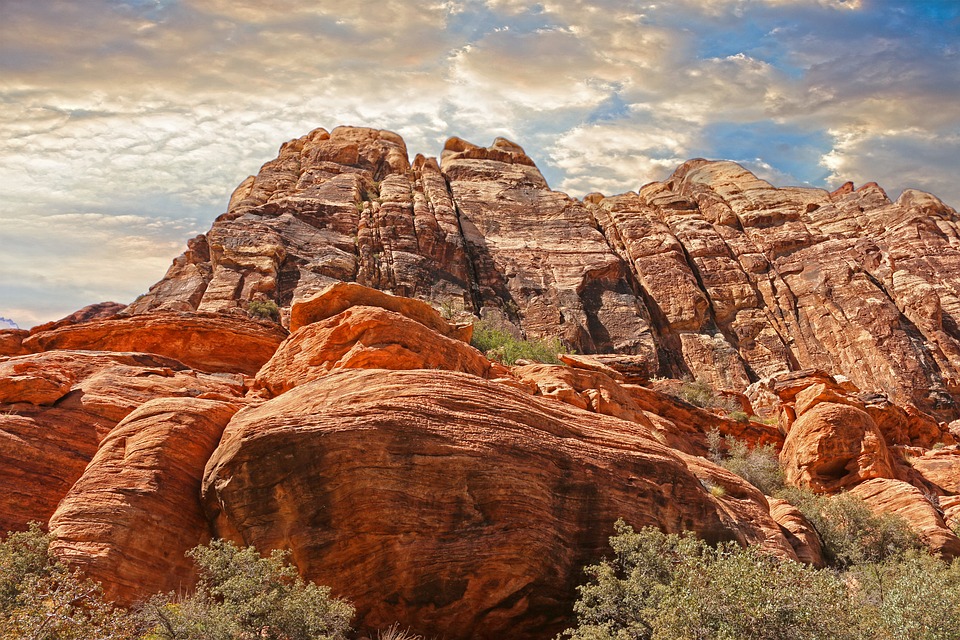Nevada state (USA)

Location
Nevada is located in the western United States, covering an area of about 286,000 square kilometers, making it the seventh-largest state in the country. It borders California to the west, Oregon to the northwest, Idaho to the north, Utah to the east, and Arizona to the southeast. The state is primarily known for its desert landscape and limited water resources. The capital is Carson City, but the largest and most famous city is Las Vegas, a hub of gambling, entertainment, and culture. Nevada is also renowned for its natural beauty, ranging from desert valleys to mountainous regions like the Sierra Nevada range.
Climate and Landscape
Nevada’s climate is mostly desert and semi-arid, characterized by very dry, hot summers and cool winters. In the summer, temperatures in most areas can reach up to 40°C, while winter lows can drop to around -5°C in some regions. Precipitation is minimal — most areas receive no more than 200 mm of rain annually, especially in desert zones like the Mojave Desert. In contrast, mountainous regions in the west receive more precipitation, including snow during winter.
The landscape of Nevada is primarily desert, with scattered mountain ranges and highlands. Key natural areas include deserts, mountain ranges, salt flats, and dry lake beds. The Sierra Nevada range in the western part of the state is notable for its rugged peaks and scenic views.
Population
Nevada’s population is approximately 3.2 million people, ranking it 32nd among U.S. states by population size. Most residents are concentrated in urban areas, especially around Las Vegas, where over 70% of the state’s population resides. The Las Vegas and Clark County area is the most rapidly growing due to its developed infrastructure, tourism appeal, and employment opportunities.
The demographic makeup is diverse, including various ethnic groups: about 68% are of European descent, 28% are Latino, 9% are African American, 8% are Asian, and others.

Crime
Nevada has a moderate crime rate compared to other states. The main crime issues are concentrated in densely populated areas, such as Las Vegas. The violent crime rate is about 450 incidents per 100,000 residents, placing the state 23rd in the country for crime rates. Crime in Nevada is largely linked to gambling and the nightlife in Las Vegas, attracting numerous tourists and increasing the risk of robberies, fraud, and drug-related offenses. However, most areas, especially residential zones, are relatively safe, especially when basic safety guidelines are followed.
Economy
Nevada’s economy is heavily dependent on the entertainment and tourism industries, particularly gambling, which brings substantial revenue to the state. Las Vegas and Reno are major centers of the gaming industry, attracting millions of tourists each year. Additionally, the state actively develops other sectors, such as healthcare, education, transportation, and mining. Nevada is one of the leading U.S. states in gold and silver mining. Unemployment rates in Nevada hover around the national average, at approximately 4-5%.
Key economic indicators:
- Minimum wage: $10.50 per hour (planned increase to $12.00 by 2024);
- Poverty rate: around 12%;
- Median household income: $63,276 (U.S. average is $68,703).
Nevada for Business
Nevada offers favorable conditions for starting a business due to low taxes and the absence of personal income tax. Entrepreneurs also benefit from low company registration costs and straightforward legal procedures. Las Vegas, in particular, has huge potential for service, tech, and entertainment businesses. However, it’s essential to consider the region’s specifics: reliance on tourism makes the market vulnerable to tourism-related downturns.
Business advantages in Nevada:
- No personal income tax;
- Ease of company registration;
- Quick access to tourist markets.
Possible disadvantages:
- High competition in tourism and entertainment sectors;
- Sensitivity to economic downturns affecting tourism.
Real Estate
The real estate market in Nevada experiences high demand, especially in cities like Las Vegas and Reno, due to tourism, economic growth, and moderate taxes. The average home price in Las Vegas is currently around $430,000, slightly below the national average, while a one-bedroom apartment rents for about $1,200 per month. Suburban areas offer lower prices, making housing in Nevada an attractive option for many newcomers. However, rapid demand growth has driven prices up, especially in high-tourism areas.
Typical housing costs in Las Vegas:
- One-bedroom apartment in the city center: $1,200–$1,500 per month.
- 3-4 bedroom suburban home: $2,500–$3,200 per month.
Ecology
Nevada’s environmental situation is somewhat mixed. The desert landscape supports clean air due to low population density and limited industrial zones. However, intensive water use and rising electricity demands are causes for concern. Las Vegas, for instance, relies on water from the Colorado River, whose supplies are dwindling, potentially leading to future water shortages. Nevada also invests in solar energy, leveraging the desert’s solar potential to reduce dependency on fossil fuels.

Landmarks
Nevada is famous for numerous landmarks that attract tourists from around the world. One of the most popular spots is the Las Vegas Strip — the main street of Las Vegas, known for its numerous casinos, luxury hotels, restaurants, and entertainment venues. Iconic sights include the Bellagio Fountains and replicas of famous world landmarks, such as the Eiffel Tower and the Pyramids of Giza.
Other notable places in Nevada:
- Death Valley National Park — one of the hottest and driest national parks in the U.S., known for its impressive desert landscapes.
- Hoover Dam — a massive engineering structure controlling the Colorado River and supplying electricity to much of the region.
- Lake Tahoe — a picturesque mountain lake on the California border, popular for summer recreation and winter skiing.
- Red Rock Canyon — a nature reserve near Las Vegas with unique red rock formations and scenic trails.
Why People Move to Nevada
Nevada has become increasingly popular among people looking for a new place to live due to its low taxes, particularly the absence of state income tax, and mild climate. Many are drawn by affordable real estate in the suburbs and the opportunity to find work in various sectors, including tourism, healthcare, and technology. Las Vegas offers abundant entertainment and cultural activities, making it appealing for young people and families alike.
Reasons to move to Nevada:
- No personal income tax.
- Affordable housing in suburban areas.
- Well-developed entertainment and cultural infrastructure.
- Diverse job market in various fields.
Table of Contents